May 18, 2025 | 03:37 GMT +7
May 18, 2025 | 03:37 GMT +7
Hotline: 0913.378.918
May 18, 2025 | 03:37 GMT +7
Hotline: 0913.378.918
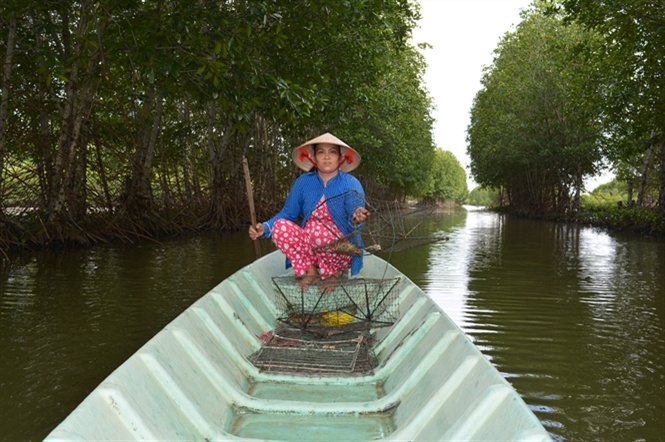
The model of PFES has been piloted in Ca Mau. Photo: TL.
The studies on building the mechanism for payment for forest environmental services (PFES) in aquaculture business in Ca Mau province is conducted within the framework of the technical support package CDTA 8592 VIE “Strengthening enforcement of payments for forest environmental services in Vietnam”. The project in funded by the Japan Poverty Reduction Fund through the Asian Development Bank (ADB) under the management of VNFF (Vietnam Forest Protection and Development Fund), with the goal of building and promoting develop a reasonable PFES payment mechanism for the international certified model in raising organic shrimp in Ca Mau.
Camimex, Seanamic and Minh Phu are currently three pioneering models in raising organic shrimp in Ca Mau.
Ca Mau's organic shrimp products are exported to Germany and Switzerland markets before being distributed to other European countries at the 20 - 50% higher price conpared to industrial shrimp products of the same type, ICMP Program (Integrated Coastal Area Management) states in their report.
Ca Mau has its outstanding potential and advantages, but the province is facing difficulties in developing organic shrimp due to two factors: The distribution of economic benefits between seafood companies and people is not balanced; the cost of certification and quality control is high due to small scale farming.
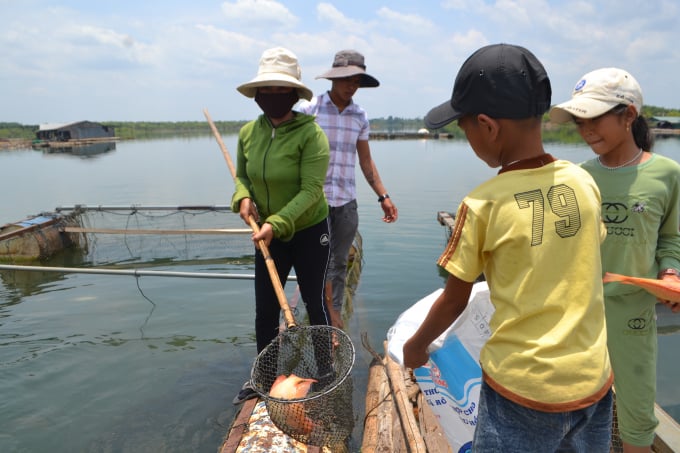
Aquaculture provides an important livelihood for the people. Photo: TL.
To solve the above problems, the People's Committee of Ca Mau province has issued Decision 111/QD-UBND dated January 22, 2016 on piloting international certified shrimp-forest farming model in Ca Mau province, in which PFES payments integration is piloted.
Under the pilot decision, there must has the win - win mechanism between seafood enterprises and farmers in conducting the shrimp - forest farming when enterprises establish and implement the international certified projects.
Through the policy of PFES, households that have contract to protect forest will receive an additional support of at least VND 500,000/ha/year or an average of VND 1,000/kg of international certified shrimp, depending on the agreement.
Thus, the PFES or payment for natural ecosystem services in aquaculture has only been piloted at a small scale with an organic shrimp raising farmer in Ca Mau. In the coming time, when this policy is implemented for the whole aquaculture industry on a national scale, it will be a huge challenge.
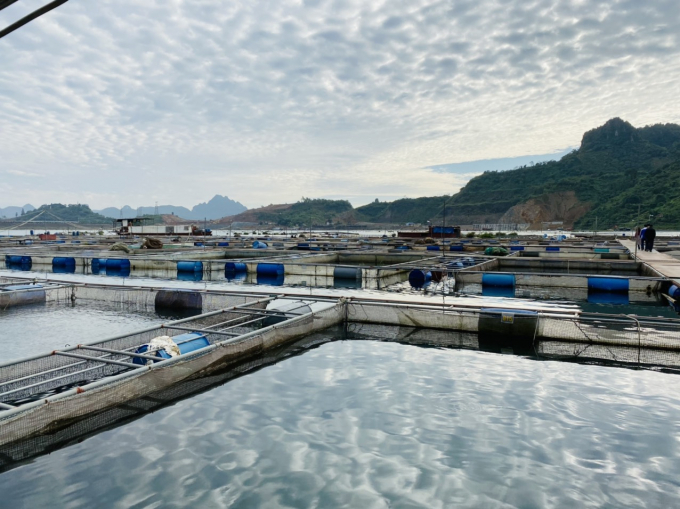
The payment for natural ecosystem services will help people and communities having more resources in the implementation of water environment protection. Photo: TL.
Vietnam has many advantages to develop aquaculture. From 1997 to 2020, seafood exports increased 11 times, growing at an average annual rate of 10%, from US$ 758 million to US$ 8.5 billion.
Statistics from the Directorate of Fisheries show that, in 2020, the aquaculture area of the whole country is 1.3 million hectares and 10,000,000 m3 cage culture (7,500,000 m3 in salty and brackish water cage, and 2,500,000 m3 in freshwater culture); aquaculture output is 4.56 million tons.
To specific: Farmed shrimp was 950,000 tons (black tiger shrimp reached 267.7 thousand tons, whiteleg shrimp was 632.3 thousand tons, other shrimps were 50,000 tons), pangasius (tra fish) was 1,560,000 tons.
There are 2,362 brackish shrimp hatcheries nationwide (1,750 breeding facilities for black tiger shrimp and 612 breeding facilities for white leg shrimp). Of which, in the Mekong Delta, there are about 120 breeding facilities for pangasius broodstock, nearly 4,000 hectares of pangasius rearing to produce about 2 billion pangasius fingerlings.
Sea farming area of Vietnam is 260 thousand ha and 7.5 million m3 cages; output reaches 600 thousand tons. Of which, marine fish farming is 8.7 thousand ha and 3.8 million m3 cages, with an output of 38 thousand tons; molluscs farming is 54.5 thousand hectares, the output is 375 thousand tons; lobster farming is 3.7 million m3 cage, the output is 2.1 thousand tons; seaweed farming is 10,150 ha, the output is 120 thousand tons; the rest are for sea crabs and other cultured species such as cold water fish (salmon, sturgeon…), with the output reaches 3,720 tons, 2 times higher than in 2015.
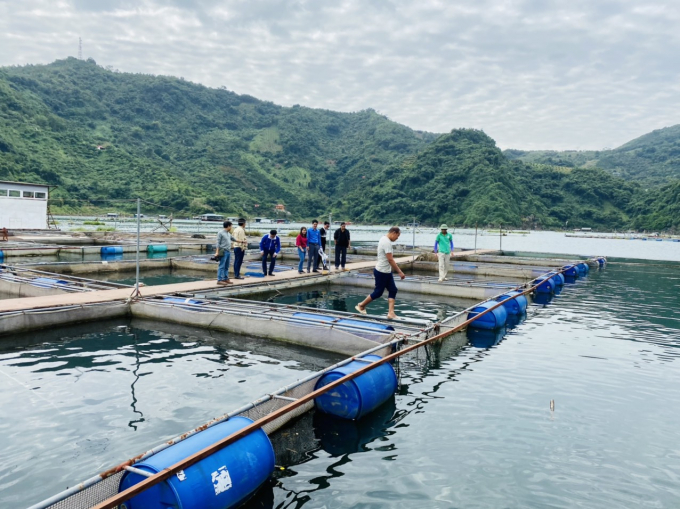
According to the provisions of the Law on Environmental Protection 2020, from January 1, 2022, aquaculture activities will have to perform the obligation to pay for natural ecosystem services. Photo: TL.
According to the provisions of the Law on Environmental Protection 2020, from January 1, 2022, aquaculture activities will have to perform the obligation to pay for natural ecosystem services.
To implement the Law on Environmental Protection 2020, the Ministry of Natural Resources and Environment is developing and submitting to the Government a Draft Decree guiding the Law, which contains content on payment for natural ecosystem services in aquaculture.
The Ministry of Agriculture and Rural Development is also actively coordinating with the Ministry of Natural Resources and Environment to have detailed guidelines on this content.
However, in the coming time, in order to implement the regulation on payment for natural ecosystem services in aquaculture, it is necessary for the participation of all levels from the central to local governments and the support of the households and organizations engaged in aquaculture activities nationwide.
The Law on Environmental Protection 2020, Article 138 regulates payment for specific natural ecosystem services for aquaculture as follows:
1. Payment for natural ecosystem services means that an organization or individual uses a natural ecosystem service to pay an organization or individual for providing environmental and landscape values created by the natural ecosystem to protect, maintain and develop natural ecosystems.
2. The natural ecosystem services are paid for:
- Wetland ecosystem services for tourism, entertainment and aquaculture business purposes.
- Marine ecosystem services for tourism, entertainment and aquaculture business purposes.
3. The principles of payment for natural ecosystem services are regulated as follows:
- Organizations and individuals that use one or several natural ecosystem services must pay for natural ecosystem services.
- The payment for natural ecosystem services is made in the form of direct payment or indirect payment through entrustment.
- Payments for natural ecosystem services shall be accounted into the cost of products and services of users of natural ecosystem services, which must be ensured to cover costs for activities of protecting, maintaining and development of natural ecosystems.
- Organizations and individuals providing natural ecosystem services must use the pauments to protect, maintain and develop the natural ecosystem.
4. Organizations and individuals must pay for natural ecosystem services when performing the following activities: Exploiting and using the water and sea surface of the ecosystem for aquaculture, aquatic entertainment services.
Translated by Khanh Linh

(VAN) Hue City rigorously enforces regulations regarding marine fishing and resource exploitation, with a particular emphasis on the monitoring of fishing vessels to prevent illegal, unreported, and unregulated (IUU) fishing.

(VAN) Hanoi People's Committee has issued a plan on reducing greenhouse gas emissions in the waste management sector with 2030 vision.

(VAN) Vietnam's draft amendment to Decree No. 156 proposes a mechanism for medicinal herb farming under forest canopies, linking economic development to population retention and the sustainable protection and development of forests.

(VAN) In reality, many craft village models combined with tourism in Son La have proven effective, bringing significant economic benefits to rural communities.

(VAN) The international conference titled Carbon Market: International experiences and recommendations for Vietnam was successfully held recently in Ho Chi Minh City.

(VAN) According to the Project on rearranging provincial and communal administrative units, in 2025, the country will have 34 provinces/cities, 3,321 communes, wards, and special zones, and no district-level organization.
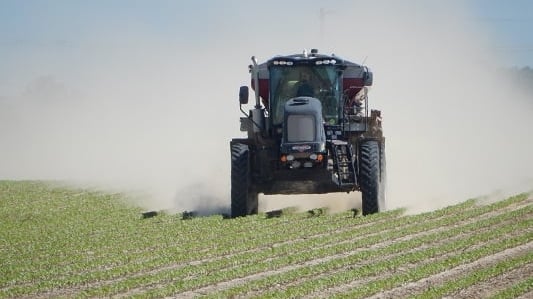
(VAN) The vice president of fertilizer with Stone X Group says the Trump administration’s tariffs are impacting fertilizer markets.